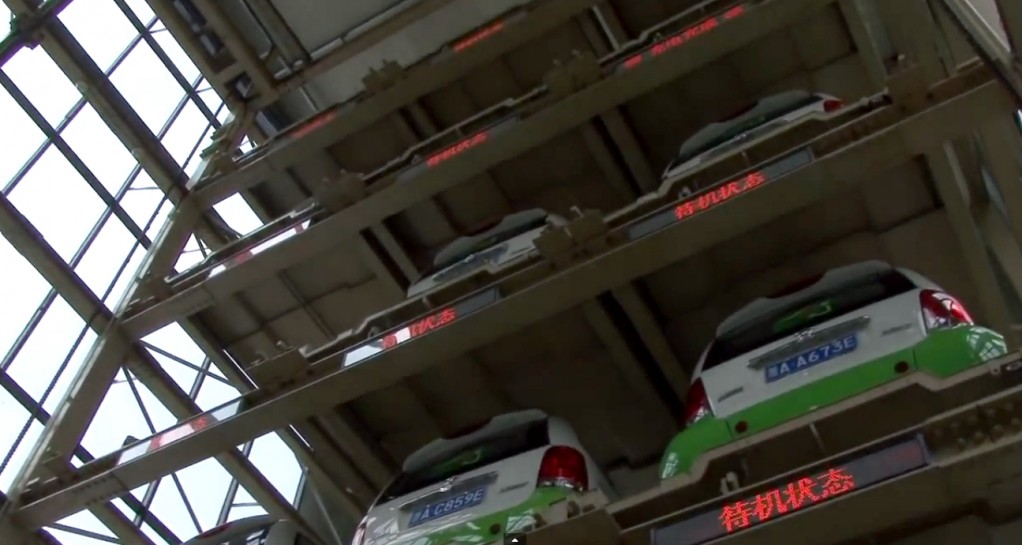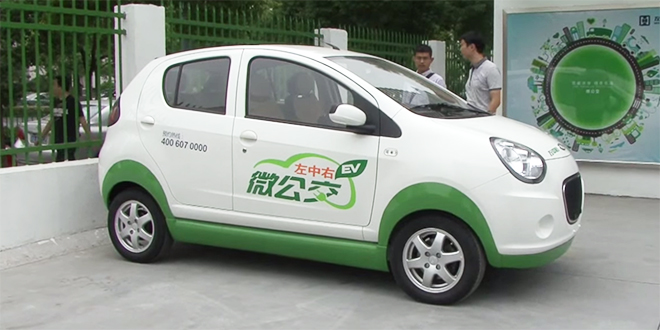Kandi Technologies Group operates a car-sharing service in China that dispenses electric cars from vending machines.
But now it plans to move into retail sales. So it looks like the Kandi Machine will soon be followed by the Kandi Store.
Amid booming electric-car sales in China, Kandi will reportedly move beyond simply renting its small electric vehicles and actually sell them to individual buyers.
RELATED: Kandi Chinese Electric-Car Sharing Service Expands To Larger Cities (Mar 2014)
Kandi is courting dealers in 26 Chinese provinces, according to Bloomberg (via Charged EVs).
The company already operates its carsharing service in eight Chinese cities, and plans to expand to a total of 15 cities before the end of the year.
Under the current scheme, cars are kept in multi-story towers. Customers pay a fee to a retrieve a car, and can drop it off at another tower depending on their travel plans.

Kandi electric car vending machine in China (Image: Aaron Rockett, video screen grab)
Vending-machine towers aside, the Kandi service is similar to electric-carsharing services offered in other countries, such as Autolib and BMW's DriveNow.
Autolib uses purpose-built Bollore BlueCar vehicles, while DriveNow uses ActiveE electric cars left over from a BMW pilot program.
MORE: Chinese Car-Share Dispenses Electric Cars Like A Vending Machine (Dec 2013)
The service uses tiny electric cars built by Kandi itself. These will likely be the same models sold to retail customers.
These cars appear to be low-speed electric vehicles designed for local use, and probably couldn't meet North American safety standards.

Kandi electric car
Kandi's expansion plans come just as electric cars are achieving steady success in China.
Electric cars have been subject to generous government incentives for so-called New Energy Vehicles over the past few years, but they haven't caught on until recently--partially due to lack of available charging infrastructure.
Yet sales picked up in the final few months of 2014, and have apparently remained strong since--leading some to suggest that China could overtake the U.S. in overall sales of electric cars.
(The numbers aren't directly comparable, however, since U.S. sales totals include only highway-capable vehicles, not low-speed electric vehicles like the Kandi.)
_______________________________________________












